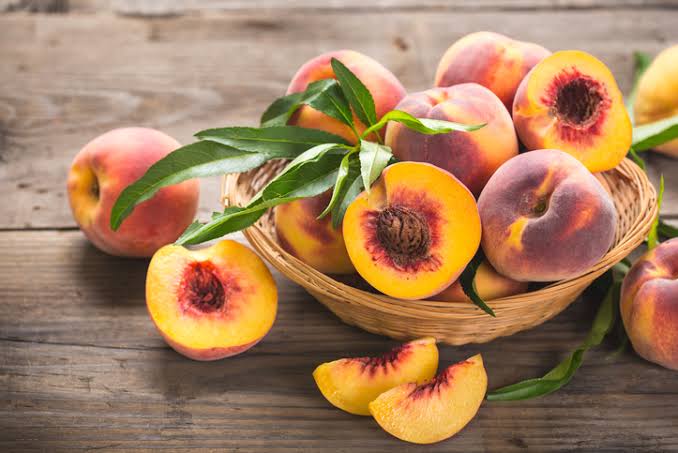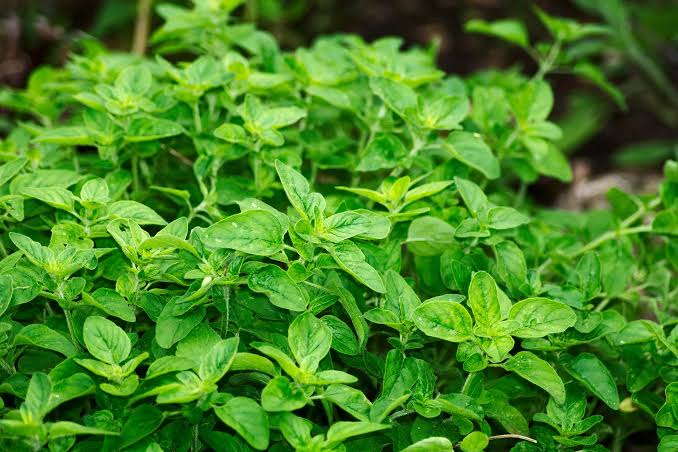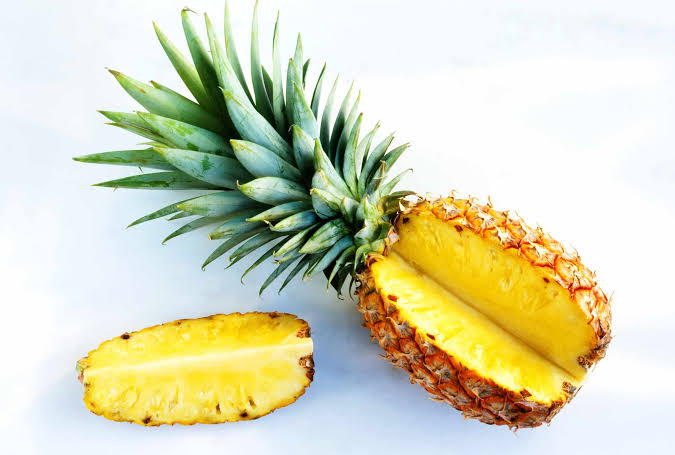Peaches are a fuzzy fruit that originate from northwest China. They belong to the stone fruit family, which means their flesh is encircled by a single big middle seed.
A peach’s inner flesh can be white, yellow, or orange in color.
Peaches are divided into two types: freestone and clingstone. These names refer to how much the flesh adheres to the inner seed or how quickly it separates from it.
In this post, we’ll look at the health benefits of peaches, as well as their nutritional profile and how to eat more of them.
Health benefits

Peaches don’t have a lot of vitamins or minerals in them. A cup of diced peach, on the other hand, contains 11.1 milligrams (mg) of vitamin C and contributes to the recommended daily allowance (RDA) of potassium, fiber, and iron.
According to US Department of Agriculture recommendations, this amount of vitamin C corresponds to 12.33 percent of the RDA for an adult male and 14.80 percent of the RDA for an adult female (USDA).
Peaches, considering their low nutrient profile, can still be beneficial to people’s health when eaten as part of a well-balanced diet that includes a variety of fruits and vegetables. Peaches may be used to replace more unhealthy added sugars in desserts and treats.
Lowering the risk of cancer
Peaches contain a high amount of vitamin C. This vitamin is an antioxidant that can help prevent the formation of free radicals, which have been related to the development of cancer.
As a result, getting enough vitamin C will help a person lower their cancer risk. Other risk factors, such as smoking, increase the amount of vitamin C that an individual requires to have a major impact on cancer risk.
Keeping skin healthy
According to research, consuming vitamin C on a regular basis will help to improve the appearance and health of the skin.
This strong antioxidant aids in the formation of collagen. Collagen serves as the skin’s support mechanism, facilitating wound healing and increasing skin strength.
Vitamin C supplementation in the diet enhanced at least one factor of real or perceived skin appearance, including wrinkling, elasticity, roughness, and coloring, according to an analysis of studies published in 2015
Contributing to fiber intake
Fiber is present in 2.52 g per cup of diced peaches. The USDA recommends 22.4–28.0 g of fiber per day for female adults and 30.8–33.6 g of fiber per day for male adults, which means that this serving size will provide at least 7.5 percent of a person’s daily fiber intake.
According to a 2018 review , fiber-rich foods have a variety of important health benefits. They can help to protect colon health, promote long-term weight control, and lower the risk of a number of adverse health conditions.
Cardiovascular disease, type 2 diabetes, and many cancers, including colorectal cancer and lung cancer, are among these illnesses.
A person’s fiber intake could be dramatically increased by replacing sweet, low fiber treats with a peach or two per day.
Consuming fruits and vegetables has many advantages. Many lifestyle-related diseases, such as obesity, diabetes, and heart disease, are reduced as plant food intake rises.
A diet rich in fruits and vegetables can also help to lower the risk of overall mortality
Topping up potassium intake
Potassium is a necessary electrolyte for cell function. According to the Office of Dietary Supplements (ODS), it can also help avoid high blood pressure, stroke, and kidney stones .
A cup of diced peach contains 319 mg of potassium, or 6.8% of the recommended 4,700 mg daily intake for adults.
Peaches aren’t one of the best sources of potassium in the diet. However, as part of a balanced diet plan, they can also play a role in helping a person control their risk of chronic disease.
Iron supplementation
Hemoglobin, which helps the blood transport oxygen across the body, contains iron. Iron deficiency anemia can occur if a person does not have enough hemoglobin.
This can cause extreme weakness, pale skin, and shortness of breath, among other symptoms, according to the American Society of Hematology.
A cup of diced peach contains 0.42 mg of iron, which accounts for at least 2.3 percent of an adult’s daily iron requirement, depending on age and gender.
Peaches do not produce enough iron to prevent iron deficiency anemia. People can, however, combine them with foods that contain more iron, such as raisins, cashew nuts, or spinach, in their diet.
Nutrition
One cup of diced peach, or 168 g, provides:
- 65.5 calories
- 1.53 g of protein
- 0.42 g of fat
- 0 g of cholesterol and sodium
- 16 g of carbohydrate
- 14.10 g of sugar
- 2.52 g of fiber
Vitamins A, E, and K, as well as magnesium and phosphorus, are all present in trace quantities in peaches.
Dietary advice
During the summer, peaches are in season. They are the freshest and have the most taste and nutritious value at this moment. Peaches with taut, fuzzy skin that yields slightly to pressure are the finest.
Place peaches in a paper bag or near a sunny windowsill to allow them to ripen.
People should avoid canned peaches that have too much syrup and instead look for varieties that have no added sugars.
Here are several ways to integrate peaches into your diet:
- Create a summer salad by starting with mixed greens or spinach and adding dry-roasted nuts, fresh peaches, fresh mozzarella, and grilled chicken, salmon, or tofu. Drizzle with a balsamic dressing.
- Eat peaches as a quick and easy on-the-go snack that requires no prep time.
- Add peaches to a breakfast dish. Sliced peaches make a great addition to oatmeal and cold cereals. They can also be an excellent topper for pancakes, waffles, and French toast.
- Muddle peaches into a glass of lemonade, iced tea, or water for a burst of fresh, fruity flavor.
- Bake sliced peaches with a drizzle of honey and cinnamon for a quick and healthful dessert.
- Make a fresh salsa with diced peaches, mango, jalapenos, red peppers, and chipotle pepper. The salsa can add flavor and texture to dishes such as tacos.
- Add a few slices of frozen peaches to a smoothie. Mix them with pineapple juice, half a frozen banana, and Greek yogurt for a sweet, tangy treat.
Although the peach is not a superfood, it can be beneficial to one’s health when consumed as part of a well-balanced diet.
Sources
- Appendix 7. Nutritional goals for age-sex groups based on dietary reference intakes and Dietary Guidelines recommendations. (2015).
https://health.gov/dietaryguidelines/2015/guidelines/appendix-7/ - The health benefits of peaches. https://www.medicalnewstoday.com/articles/274620
- Dreher, M. L. (2018). Whole fruits and fruit fiber emerging health effects.
https://www.ncbi.nlm.nih.gov/pmc/articles/PMC6315720/#B345-nutrients-10-01833 - Hever, J., & Cronise, R. J. (2017). Plant-based nutrition for healthcare professionals: Implementing diet as a primary modality in the prevention and treatment of chronic disease.
https://www.ncbi.nlm.nih.gov/pmc/articles/PMC5466942/ - Iron: Fact sheet for health professionals. (2019).
https://ods.od.nih.gov/factsheets/Iron-HealthProfessional/ - Iron-deficiency anemia. (n.d.).
https://www.hematology.org/Patients/Anemia/Iron-Deficiency.aspx - Peach. (2008).
http://www.fruitsandveggiesmorematters.org/peach - Peach, raw. (2019).
https://fdc.nal.usda.gov/fdc-app.html#/food-details/341586/nutrients - Pezdirc, K., et al. (2015). Can dietary intake influence perception of and measured appearance? A systematic review [Abstract].
https://www.ncbi.nlm.nih.gov/pubmed/25600848 - Potassium: Fact sheet for health professionals. (2019).
https://ods.od.nih.gov/factsheets/Potassium-HealthProfessional/ - Pullar, J. M., et al. (2017). The roles of vitamin C in skin health.
https://www.ncbi.nlm.nih.gov/pmc/articles/PMC5579659/ - Vitamin C: Fact sheet for consumers. (2019).
https://ods.od.nih.gov/factsheets/VitaminC-Consumer/







